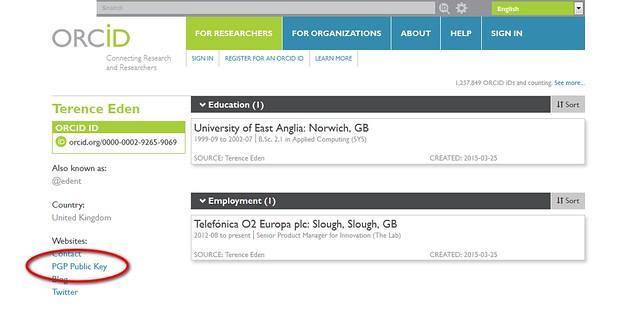This morning I attended a very interesting presentation on the availability, in the United Kingdom, of grant funding from the Heritage Lottery Fund (HLF), for digital heritage projects. I’ve previously worked as Wikipedian in Residence or as a Wikipedia consultant on HLF-funded projects*, helping to disseminate knowledge and content generated by those projects via Wikipedia, via Wikimedia Commons and via Wikidata.

This fantastic image of a World War II badge was taken by Sasha Taylor during a Wikipedia editathon I ran as part of my HLF-funded residency at Thinktank, Birmingham Science Museum. Because Sasha was a volunteer, he’s not bound by HLF rules, so was able to use a CC BY-SA licence, and I was then able to add the image to Wikipedia articles. With an NC restriction, I couldn’t have done so.
As part of the presentation, it was proudly pointed out that the HLF’s current terms of funding include:
All digital outputs must be… licensed for use by others under the Creative Commons licence ‘Attribution Non-commercial’ (CC BY-NC) for the life of your contract with HLF, unless we have agreed otherwise
However, I’m really irked by this. I’ve written previously about what this means and why Wikipedia and its sister projects require content to be under a less restrictive licence, allowing for commercial reuse (briefly: people are allowed to reuse content from Wikipedia in commercial situations, for example in newspapers, or in apps which are sold for use on mobile devices). Others — have — written about why the NC restriction can be harmful.
Of course, mechanical copies of out-of-copyright works should be marked as such, and no attempt to claim copyright over them should be made.
In response to my question, it was confirmed that the terms prohibit less-restrictive licences, even if those doing the work wish to use them.
[Admittedly there is a work-around, which is to dual licence as both CC BY-NC and a less-restrictive version; which technically meets the letter of HLF’s requirement, but is actually nonsensical.]
I can see no earthly reason why HLF would insist on prohibiting a less restrictive licence, if the bodies they are funding choose to use one. If I’ve missed something, I’d be grateful for an explanation.
The phrase “for the life of your contract with HLF” is also nonsensical, since such licences are both indefinite and irrevocable.
I would like to see the above wording changed, to something like:
All digital outputs must be… licensed for use by others under the Creative Commons licence ‘Attribution Non-commercial’ (CC BY-NC) or a less restrictive licence (e.g. CC BY, CC BY-SA, or CC0), unless we have agreed otherwise
Better sill, HLF could mandate an open licence, unless agreed otherwise.
How about it, HLF?
* If you’re bidding for HLF funding and would like advice about including a Wikipedia component, please drop me a line#.
# That might lead to someone paying me. Some would argue that that means I can’t use a NC-restricted image on this page.






